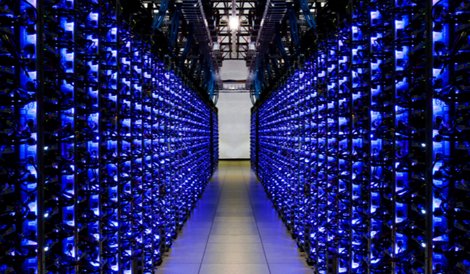Google’s servers now handle a massive 60% average of all internet traffic a day, according to new research by DeepField, a company that tracks cloud-based services for revenue and other performance measurements.
It said the Internet giant hit the 60% barrier recently for traffic interacting with Google servers from internet end devices including computers, mobile devices, gaming consoles, home media appliances and other embedded devices.
It said such growth has also been spurred on by the growing use of Google’s services including Google analytics, hosting and advertising, which are used by more than half of all large web services or sites today.
Much of this has also been driven by Google’s focus on the network, from fiber to the data center, the report said.
“While it is old news that Google is big, the sheer scale and dominance of Google in the Internet infrastructure has significant implications on network design and evolution,” the report said.
“When we last published some large-scale measurements in 2010, Google represented (a now seemingly small) 6% of Internet traffic. Today, Google now accounts for nearly 25% of Internet traffic on average. Only Netflix has larger bandwidth, but Netflix peaks last only for a few hours each evening during prime time hours and during Netflix cache update periods in the early morning.”
Google places thousands of servers in Internet providers around the world, and has Google Global Cache servers in most US Internet provider facilities.
In 2010, most of these deployments were seen in regions where Google has less of a data center presence – Asia, Latin America and Africa, the report said.
Google said its multi-tiered content delivery platform now reaches more than 100 countries, and leverages Google’s own data centers and backbone to provide edge points of presence around the world.
“We aim to deliver Google content and services as close to users as possible in order to provide the best possible performance and lowest cost for network operators to serve traffic demanded by their subscribers,” Google said.
It hosts original content in Google data centers then replicates this to multiple data centers for redundancy and efficient delivery to end users.
Google is known for having some of the largest and most innovative internet data centers in the world.
Last week Google said it had more than doubled the amount of cash spent on building out new data center capacity in Q2 this year, compared to its 2012 results.
It said it spent US$1.6bn in capital expenditure in the quarter most of which went into production equipment, data center construction and facilities related purchases.
In the quarter, Google said it was expanding its data center operation in Belgium for about US390m and Lenoir, North Carolina, for US$600m.
Google CEO Larry Page said Google is benefiting from the rise in use of the mobile device.
“With more devices, more information, and more activity online than ever, the potential to improve people’s lives even more is immense,” Page said.

